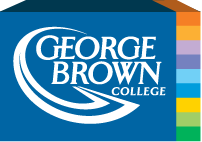About Practical Nursing Program in George Brown College
The two-year Practical Nursing program teaches students the foundational skills required to work as a practical nurse. Following successful completion of the program, graduates will be eligible to write the national Canadian Practical Nurse Registration Examination (CPNRE).
What you'll study:
- nursing
- human anatomy
- physiology
- pharmacology
- pathology
- the humanities
PROGRAM STANDARDS AND LEARNING OUTCOMES
The graduate has reliably demonstrated the ability to:
- Communicate therapeutically with clients and members of the health care team.
- Assess clients across the life span, in a systematic and holistic manner.
- Plan safe and competent nursing care, based upon a thorough analysis of available data and evidence-informed practice guidelines.
- Select and perform nursing interventions using clinical judgment, in collaboration with the client and, where appropriate, the health care team, that promote health and well-being, prevent disease and injury, maintain and/or restore health, promote rehabilitation, and/or provide palliation.
- Evaluate the outcomes resulting from all interventions in the nurse-client interaction and modify the plan of care as required.
- Act equitably and justly with clients and members of the health care team.
- Adapt to a variety of health care settings, using different leadership skills and styles as appropriate to each setting.
- Contribute to creating a healthy and safe work environment in a variety of health care settings.
- Practise in a self-regulated, professional and ethical manner, complying with relevant legislation and with the standards of both the regulatory body and the practice setting to provide safe and competent client care.
YOUR CAREER
Graduates of the Practical Nursing program have employment opportunities in practice settings such as:
- acute and community care hospitals
- long-term care
- rehabilitation
- other health-care facilities
- organizations and agencies that require nursing knowledge and expertise
Academic qualification equivalents
- Have graduated from senior secondary school or equivalent (those applying for a postgraduate program must have graduated from a university or college)
English language requirements (one of the below):
- IELTS : 6.0, minimum 5.5 in each skill band
- TOEFL : 80 (Internet-based) minimum 20 in each skill band
- PTE : 54, overall minimum 50 in each skill band
George Brown College Highlights
| Type of College |
Public |
| Campus Setting |
Urban |
| Location |
Toronto, Ontario, Canada |
| Number of Campuses |
3 + 3 (location/centers) |
| Type of programs |
Certifications, Diploma, Degree, and Continuing Education |
| Number of full-time students |
32,000 + |
| Number of part-time students |
3,000 + |
| %age of International Students |
17% |
| Official Website |
www.georgebrown.ca |
George Brown College The Average Tuition Fees And Other Expenses
| Student Type |
Tuition Fee |
| Canadian students |
2780 - 15310 USD(two semesters) |
| International Students |
11,320 - 23,900 USD(two semesters) |
Tuition fees for some of the popular programs offered by George Brown College are mentioned below
| Course Name |
Tuition Fee(USD) |
| B.Com |
6,052 |
| B.Tech |
7,272 |
| BSN |
5,430 |
| Wireless Network(Postgraduate) |
4,365 |
| Construction Management(Postgraduate) |
6,183 |
| Marketing Management(Postgraduate) |
4,176 |
Residence Fees
Although rents may vary depending on quality and location, most rents listed by the Housing Service are within the following ranges:
| Accommodation Type |
Rent |
| Shared Accommodation |
500 - 700 USD per month |
| One - Bedroom Apartment |
900 - 1,200 USD per month |
| Two - Bedroom Apartment |
1,100 - 1,500 USD per month |
| Three - Bedroom Apartment |
1,300 - 1,800 USD per month |
Meal Plans
The college provide three types of meal plan options its students, the details of which are mentioned below:
| Plan Name |
Cost |
| Annual Swipe & Save Plan |
1700 USD |
| Semester Swipe & Save Plan |
850 USD |
| Swipe & Save Reloadable Card |
400 USD |
